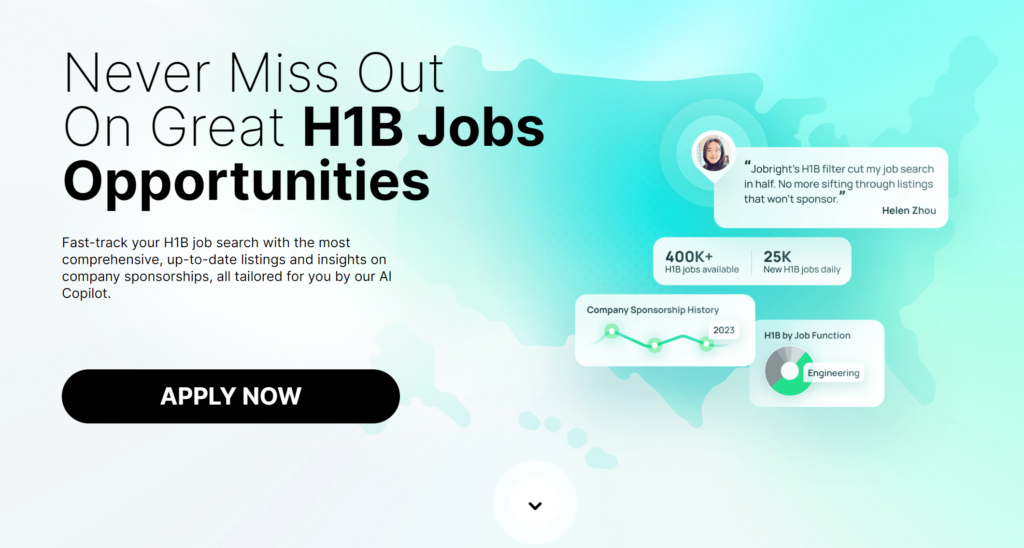How to Choose the Right Job Title for Your H1B Visa Application

Table of Contents
The H1B visa is a beacon of hope for skilled professionals aiming to work in the United States. But before embarking on this journey, understanding the nuances of the H1B visa petition, particularly the job title you present, is of utmost importance. This blog post delves into why your job title matters and how it can impact your H1B visa petition.
The Role of Job Titles in H1B Visa Petitions 🏷️
Job titles serve as a brief but powerful descriptor of an individual’s professional capacity within an organization. They are not mere designations but are imbued with meaning that can affect the outcome of an H1B visa petition. When applying for an H1B visa, the job title must accurately reflect the specialized nature of the occupation for which one is hiring the foreign worker.

The United States Citizenship and Immigration Services (USCIS) has specific criteria for what constitutes a specialty occupation, typically one that requires:
- A body of highly specialized knowledge.
- A minimum of a bachelor’s degree or its equivalent in a specific specialty.
- Expertise that is unique and not commonly found in the general workforce.
In essence, the job title on the H1B visa petition should correspond to a role that is complex, specialized, and indicative of a position that cannot be easily filled by a worker without specialized training or education. For instance, a job title of ‘Software Engineer’ implies a need for advanced knowledge in computer science and programming, which fits the USCIS definition of a specialty occupation.
It is not enough for the job title to simply sound impressive or specialized. USCIS may cross-reference the stated job title with the Department of Labor’s (DOL) Occupational Outlook Handbook or other industry standards to verify that the job duties and educational requirements match the industry’s expectations for that title.
By ensuring the job title accurately encapsulates the specialized nature of the position, employers and applicants alike can avoid unnecessary scrutiny and increase the likelihood of a successful H1B visa petition.
Navigating the Specialty Occupation Criteria of H1B Visa🎯
To qualify as a specialty occupation under H1B visa guidelines, the job must adhere to stringent criteria that underscore the need for specialized knowledge and expertise. This specialized knowledge is typically obtained through the attainment of a bachelor’s degree or higher in a specific field related to the job. Here are the key elements that define a specialty occupation:

- Degree Requirement: The position must require a minimum of a bachelor’s degree or its foreign equivalent. This is a baseline requirement, indicating the role’s complexity and the need for advanced understanding in a particular discipline.
- Industry Standards: The job must meet industry standards for specialization. For example, if the norm for a position within the industry requires advanced degrees or specific qualifications, the job title and duties in the H1B petition should reflect this.
- Specific Duties: The job duties must be so specialized and complex that the knowledge required to perform them is usually associated with the attainment of a bachelor’s degree or higher. This means that the role cannot be easily filled by someone without the requisite specialized education.
- Employer Requirement: The employer must normally require a degree or its equivalent for the position. This is evident in job postings, hiring practices, and the employment history of the position within the company.
In the context of the H1B visa application, the logic comes from the clear need for specialized knowledge, the emotion from the dedication of the applicant to their field, the authority from the industry standards that mandate such specialization, and the model from the structured approach to presenting the job title and duties. To know more about it, you can read this article: H-1B Eligibility Criteria
Matching Job Titles with Salary Levels 💵
The Department of Labor (DOL) plays an essential role in the H1B visa process by setting prevailing wage standards. Established standards guarantee that employers pay foreign workers at least the minimum wage common for their occupation in the specific geographic area of employment. The job title and the required level of responsibility and expertise for the position determine the prevailing wage.
- Determining the Prevailing Wage: The DOL uses the Occupational Employment Statistics (OES) and other surveys to determine the prevailing wage for each occupation in various regions. Employers must consult these standards when offering a salary to an H1B employee to ensure compliance.
- Level of Position: Job titles are typically associated with levels that denote the degree of complexity and specialization of the role. These levels range from entry-level (Level I) to fully competent (Level IV), with each level having a corresponding prevailing wage.
- Ensuring Compliance: To avoid legal complications and potential delays in the H1B visa petition, employers must ensure that the wage offered to the H1B employee meets or exceeds the prevailing wage for the job title and level. Any significant discrepancy between the job title, the level of the position, and the salary can be a red flag for the USCIS.

The LEMA framework, shared by Lily Ugbaja, emphasizes the importance of connecting with the audience through Logic, Emotions, Authority, and Model. When explaining the correlation between job titles and salary levels, it’s crucial to communicate the logic behind the DOL’s prevailing wage standards, the emotional aspect of fair compensation, the authority of the DOL in mandating these wages, and the model approach of ensuring compliance to avoid complications.
Leveraging Jobright.ai for Job Title Verification 🔍
Jobright.ai offers a comprehensive solution for professionals navigating the H1B visa application process, particularly when it comes to verifying job titles and understanding the corresponding salary levels. Here’s how our platform makes this critical step more manageable:
- Extensive Database Access: Jobright.ai provides access to a vast database of companies that have a history of sponsoring H1B visas. This information is invaluable for job seekers looking to target their applications to the right employers.
- Salary Level Insights: Our platform compiles data on prevailing wages for various job titles across different regions, ensuring that you have the most up-to-date information when preparing your petition.
- Job Title Consistency: With Jobright.ai, you can confirm that the job title you intend to use in your H1B petition is consistent with those used by potential sponsors and that it aligns with the role’s specialized nature as required by USCIS.
- Real-time Updates: The job market and prevailing wages can fluctuate; Jobright.ai provides real-time updates to help you stay informed and ensure that your application remains competitive and compliant.
- User-Friendly Search Filters: Within our user-friendly interface, you can easily filter job listings by work authorization to specifically include “H1B sponsorship”. This narrows down your search to employers who are not only looking for your skill set but are also willing and able to sponsor your visa.
- Support and Resources: Beyond the database, Jobright.ai offers resources and support for H1B applicants, including guides on visa application, interview preparation, and tips for securing sponsorship.
Use Jobright.ai to find a list of open roles, and within our site filters, toggle on “Work authorization: H1B sponsorship” to streamline your search for the right H1B job.

